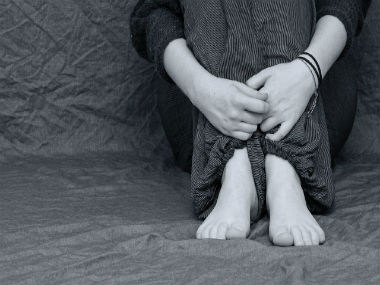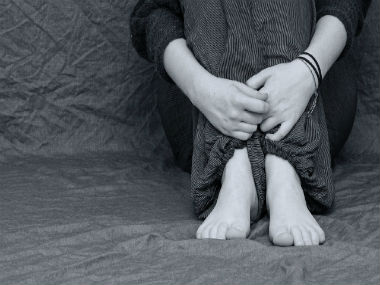September is being observed as Polycystic Ovary Syndrome (PCOS) awareness month around the world to help initiate a conversation about this underdiagnosed medical condition. PCOS occurs because of hormonal imbalances and affects women in their reproductive years - women are usually 18-35 years old when they are diagnosed. Women with PCOS often suffer from depression and may have difficulty conceiving. [caption id=“attachment_7328191” align=“alignleft” width=“380”]  Representational image. Image by Anemone123 from Pixabay[/caption] According to one estimate, one in four women suffers from PCOS globally. PCOS is a treatable condition that desperately needs this awareness month. Here is what we need to know about it:
Symptoms
The symptoms of this hormonal disorder are:
- Irregular periods: Girls and women living with PCOS often have infrequent, painful or prolonged periods. The lack of periods is one of the more common symptoms of PCOS
- Excess facial or body hair: In people living with PCOS, the levels of estrogen (the female hormone) can decrease while levels of androgen (the male hormone) can be elevated. This can manifest in many ways: more facial and body hair, severe acne or baldness are some of them
- Polycystic ovaries: This symptom gives PCOS its name. Women suffering from PCOS may have cysts on their ovaries, which may hinder the regular functioning of their ovaries
- Obesity: Obesity and PCOS are interlinked. According to one estimate, 40-80% of women suffering from this disorder are overweight or obese
- Dark patches on the skin: Dark patches on the skin folds of the neck, under the breasts or groin have also been observed in PCOS patients
Causes
Though doctors know that PCOS is a hormonal imbalance disorder, they don’t yet know the exact underlying cause of the disease. Hormonal imbalances can occur because of some of these factors:
- Genetic: Most people living with PCOS have a close female relative with this condition
- Elevated levels of insulin: Produced in pancreas, the insulin hormone helps the body process sugars. When the body fails to use insulin properly, blood sugar rises. As a result, the body produces more insulin to process the increased sugar level. Elevated levels of insulin in the body can induce hormonal imbalance, and in some cases, lead to an excess of male hormones
- Inflammation: Low-level inflammation is considered to be one of the causes of PCOS. The inflammation could be because of obesity or increased levels of androgen hormone
More health effects
The hormonal imbalance in PCOS patients can lead to complications like infertility and miscarriages. Here’s a quick list of the reasons why it’s so important to diagnose and treat PCOS as early as possible:
- Infertility, premature birth or miscarriages: Increased levels of male hormone in the body can interrupt regular ovulation - the production of eggs in the ovaries. PCOS is one of the leading cause of infertility and pregnancy problems like miscarriages and premature birth in the world
- Disturbed metabolism: Both obesity and PCOS result in metabolic problems like high blood pressure, rise in blood sugar levels, low levels of good cholesterol and high levels of bad cholesterol and further increase the risks of health problems like diabetes, heart disease and stroke
- Depression: Disturbed hormones, irregular periods and increased facial hair can induce depression and anxiety in women
Across the world, women’s reproductive health is considered a sensitive or private matter. The goal of PCOS awareness month is to bring the subject out into the open and acknowledge it for what it is: a medical condition in need of treatment. If you or a loved one often miss your periods or have periods that last more than seven days, or you have more facial or body hair than other girls of the same age, it’s time to visit your doctor. Health articles in Firstpost are written by myUpchar.com, India’s first and biggest resource for verified medical information. At myUpchar, researchers and journalists work with doctors to bring you information on all things health. To know more about this topic, please see Polycystic Ovary Syndrome


)

)
)
)
)
)
)
)
)



